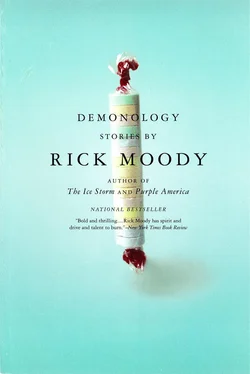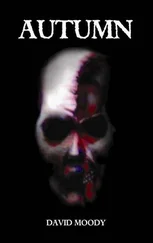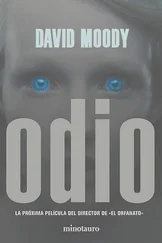My sister started to seize.
The report of her fall was, of course, loud enough to stir her boyfriend from the next room. He was out of bed fast. (Despite physical pain associated with his recent surgery.) I imagine there was a second in which other possibilities occurred to him — hoax, argument, accident, anything — but quickly the worst of these seemed most likely. You know these things somewhere. You know immediately the content of all middle-of-the-night telephone calls. He was out of bed. And my niece called out to her brother, to my nephew, next door. She called my nephews name, plaintively, like it was a question.
* * *
My sister’s hands balled up. Her heels drumming on the carpeting. Her muscles all like nautical lines, pulling tight against cleats. Her jaw clenched. Her heart rattling desperately. Fibrillating. If it was a conventional seizure, she was unconscious for this part — maybe even unconscious throughout — because of reduced blood flow to the brain, because of the fibrillation, because of her heart condition; which is to say that my sister’s mitral valve prolapse —technical feature of her broken heart —was here engendering an arrhythmia, and now, if not already, she began to hemorrhage internally. Her son stood in the doorway, in his pajamas, shifting from one foot to the other (there was a draft in the hall). Her daughter knelt at the foot of the bed, staring, and my sister’s boyfriend watched, as my poor sister shook, and he held her head, and then changed his mind and bolted for the phone.
After the seizure, she went slack. (Merediths heart stopped. And her breathing. She was still.) For a second, she was alone in the room, with her children, silent. After he dialed 911, Jimmy appeared again, to try to restart her breathing. Here’s how: he pressed his lips against hers. He didn’t think to say, Come on, breathe, dammit, or to make similar imprecations, although he did manage to shout at the kids, Get the hell out of here, please! Go downstairs! (It was advice they followed only for a minute.) At last, my sister took a breath. Took a deep breath, a sigh, and there were two more of these. Deep resigned sighs. Five or ten seconds between each. For a few moments more, instants, she looked at Jimmy, as he pounded on her chest with his fists, thoughtless about anything but results, stopping occasion ally to press his ear between her breasts. Her eyes were sad and frightened, even in the company of the people she most loved. So it seemed. More likely she was unconscious. The kids sat cross-legged on the floor in the hall, by the top of the stairs, watching. Lots of stuff was left to be accomplished in these last seconds, even if it wasn’t anything unusual, people and relationships and small kindnesses, the best way to fry pumpkin seeds, what to pack for Thanksgiving, whether to make turnips or not, snapshots to be culled and arranged, photos to be taken — these possibilities spun out of my sister’s grasp, torrential futures, my beloved sister, solitary with pictures taken and untaken, gone.
EMS technicians arrived and carried her body down to the living room, where they tried to start her pulse with expensive engines and devices. Her body jumped while they shocked her — she was a revenant in some corridor of simultaneities — but her heart wouldn’t start. Then they put her body on the stretcher. To carry her away. Now the moment arrives when they bear her out the front door of her house and she leaves it to us, leaves to us the house and her things and her friends and her memories and the involuntary assemblage of these into language. Grief. The sound of the ambulance. The road is mostly clear on the way to the hospital; my sister’s route is clear.
I should fictionalize it more, I should conceal myself. I should consider the responsibilities of characterization, I should conflate her two children into one, or reverse their genders, or otherwise alter them, I should make her boyfriend a husband, I should explicate all the tributaries of my extended family (its remarriages, its internecine politics), I should novelize the whole thing, I should make it multi-generational, I should work in my forefathers (stonemasons and newspapermen), I should let artifice create an elegant surface, I should make the events orderly, I should wait and write about it later, I should wait until I’m not angry, I shouldn’t clutter a narrative with fragments, with mere recollections of good times, or with regrets, I should make Meredith’s death shapely and persuasive, not blunt and disjunctive, I shouldn’t have to think the unthinkable, I shouldn’t have to suffer, I should address her here directly (these are the ways I miss you), I should write only of affection, I should make our travels in this earthly landscape safe and secure, I should have a better ending, I shouldn’t say her life was short and often sad, I shouldn’t say she had her demons, as I do too.
These stories first appeared in the following places: “The Mansion on the Hill”in the Paris Review, and in Pushcart Prize 24; “On the Carousel”in Fence; “The Double Zero”(based on Sherwood Andersons “The Egg“) in McSweeney’s; “Forecast from the Retail Desk”in the New Yorker; “Hawaiian Night”in the New Yorker; “Drawer”in Esquire; “Pan’s Fair Throng”in Conjunctions, and in a gallery pamphlet at a show of Elena Sisto’s paintings; “The Carnival Tradition”in the Paris Review; “Wilkie Fahnstock: The Boxed Set”in Primal Primers, and on Word.com; “Boys”in Elle; “Ineluctable Modality of the Vaginal”in Lit, and in Fiona Giles’s anthology Chick for a Day; and “Demonology”in Conjunctions, in Pushcart Prize 21, in O. Henry Prize Awards, in The KGB Bar Reader, and in Survival Stories.
Quotations from Nijinsky are from the excellent Joan Acocella translation; quotations from Nietzsche are from the translation by Douglas Smith.
For encouragement and support: my family, Julia Slavin, Amy Hempel, Mary Robison, Susan Minot, Mary-Beth Hughes, Heather McGowan, Elizabeth Gaffney, George Plimpton, Bradford Morrow, Alice Quinn, Bill Buford, Gregory Crewdson, Fiona Giles, David Ford, Adrienne Miller, Margaret Nagle, Dave Eggers, Laura Iglehart, Courtney Eldridge, Bill Henderson, Michael Pietsch, Walter Donohue, Michael and Nina Sundell, all at Yaddo, all at Cranberry’s, and the most extraordinary Melanie Jackson.
Lyrics excerpt from “If I Loved You”by Richard Rodgers and Oscar Hammerstein II copyright 1945 by Williamson Music. Copyright renewed. International Copyright Secured. All Rights Reserved. Reprinted by Permission.
Lyrics excerpt from “The Wedding Song”copyright © 1971 (Renewed) Public Domain Foundation. All Rights Reserved. Used by Permission. Warner Bros. Publications U.S. Inc., Miami, FL 33014.
GARDEN STATE
A Novel
“Rick Moody’s first novel, set in New Jersey, has established its author as his generations foremost chronicler of middle-class malaise in tristate exurbia. Moody’s dark wit and unflinching eye for the bathetic render him a particularly appropriate seer of con temporary alienation, and the inevitable — not wholly unjust — comparisons have been made: to Updike, to Cheever, and, more accurately, to Amis fils.“
— Claire Messud, Village Voice
“Impressive.… An auspicious debut.“
— New York Times Book Review
THE ICE STORM
A Novel
With a new afterword by the author about the movie The Ice Storm
Читать дальше












